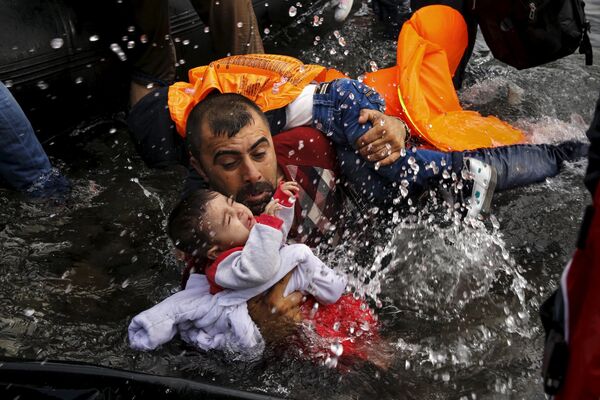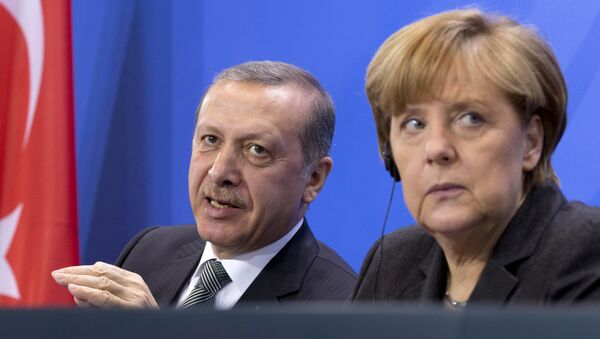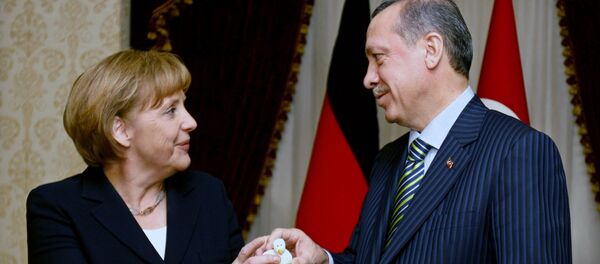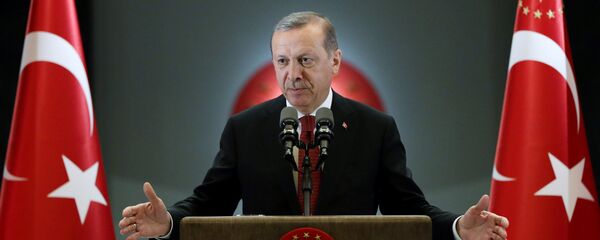Relations between Ankara and Berlin have been under strain for some time, particularly because the German media has not been afraid of taking a swipe at the Turkish President, who is under fire for clamping down on press freedoms in his own country and silencing journalists who criticize him.
The latest row is over the front cover of respected German magazine Der Spiegel, showing Erdogan wearing sunglasses reflecting two minarets as rockets taking off from a mosque and describing him in an article as a "Dictator."
'Der Spiegel' special edition: '#Turkey, the country which lost its freedom.Dictator at war w (own) Kurdish cities' pic.twitter.com/z9N8MTrEEm
— Cahida Dêrsim (@cdersim3) September 10, 2016
The latest incident comes on the back of a spat between Germany and Turkey over satirist Jan Bohmermann, who broadcast a poem on ZDF television sitting in front of a portrait of Erdogan, reading out a poem that accusing the Turkish president of "repressing minorities, kicking Kurds and slapping Christians while watching child porn", among other things.
Erdogan demanded that Bohmermann be prosecuted, which German Chancellor Angela Merkel has allowed, under a little known German law, although, no prosecution has — so far — occurred.
On top of that, Turkey banned German lawmakers from visiting Incirlik Air Base, in southern Turkey, used by the German military in response to a German parliamentary resolution declaring the 1915 massacre of Armenians by Ottoman forces "genocide," which Turkey denies.
Merkel Under Pressure
The media spat is significant, in that German Chancellor Angela Merkel played a major role in negotiating the controversial EU-Turkey migrant deal, under which the EU was due to pay Turkey — initially — US$3.95 billion to bolster its refugee camps and accept "irregular" migrants denied asylum in Greece in return — on a one-for-one basis — for Syrian refugees in Turkey being relocated in the EU.
However, as part of the deal, the EU was supposed to grant Turkish citizens visa-free access to the EU by the end of July and accelerate its accession to becoming a full member of the EU, provided it meets more than 70 criteria relating to human rights and other administrative protocols.
The deal has run into trouble as Turkey had to meet 72 criteria to speed up its accession into the EU, most notably on anti-terror powers, as well as freedom of expression and the media. Erdogan is refusing to change anti-terror laws that he has used against journalists and media companies. Moreover, he has recently passed a law lifting immunity for lawmakers in a move critics say will lead to the victimization of opposition politicians.
Since the attempted coup, however, Erdogan's massive suppression of those associated with the coup — the judiciary, the military and the police — has been the cause of deep skepticism within the EU over Turkish membership, putting the migrant deal in peril and raising the specter of thousands more migrants flooding into Europe each day.

The fact that such a well-respected magazine as Der Spiegel can use the front cover to take a pop at Erdogan is a sign that German media is keen to keep Erdogan under pressure. However, it will also pile pressure on Merkel, who is likely to have severe difficulties taking any action against the magazine, one of Europe's most influential publications.




